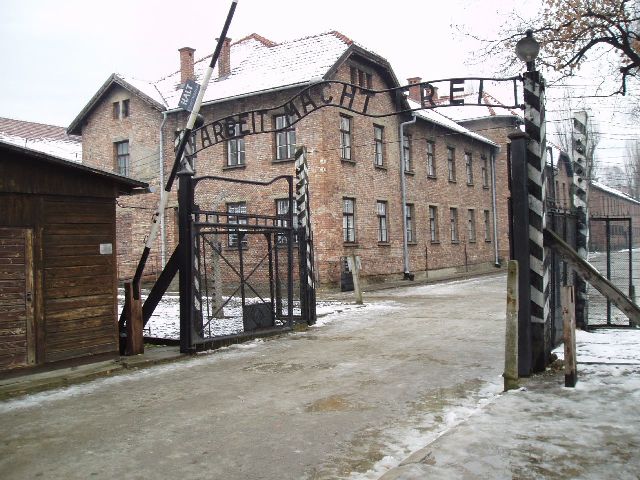Thirty former Auschwitz death camp guards should face prosecution in Germany, justice officials have said.
The Baden-Wuerttemberg state justice ministry, heading the investigation, said 49 guards had been investigated, of whom 30 should be prosecuted.
The 30 are spread across Germany, and another seven are living abroad. They are said to be aged up to 97.
Auschwitz was the biggest Nazi death camp. More than 1.1 million people, most of them Jews, were murdered there.
The case of Ukrainian-born John Demjanjuk two years ago changed the legal situation concerning people who worked at the death camps.
John Demjanjuk died last year while appealing against his five-year jail sentence for complicity in the murder of more than 28,000 Jews at the Sobibor camp in Nazi-occupied Poland.

A judge had ruled that even though there was no clear evidence that he had committed murder directly, his mere activities as a worker at the death camp facilitated mass murder.
Previously German courts only considered cases where Nazi suspects were accused of personally committing atrocities.
In July the US-based Simon Wiesenthal Center, a Jewish organization which investigates Nazi war criminals, launched a poster campaign in Berlin seeking evidence on such fugitives from justice, with the slogan “Late – but not too late”.
The justice agency in Ludwigsburg, Baden-Wuerttemberg, which heads German investigations into Nazi war crimes, said that of the 49 ex-guards from Auschwitz, in Nazi-occupied southern Poland, nine had died.
The agency said it was now handing over its findings to prosecutors in the German states.
Six of the cases will be handled by Baden-Wuerttemberg, seven by Bavaria, two by Saxony-Anhalt, four by North Rhine-Westphalia, four by Lower Saxony, two by Hesse and one each by Rhineland-Palatinate, Hamburg, Schleswig-Holstein, Saxony and Mecklenburg-Western Pomerania.
The agency says it now plans to re-examine the actions of all former Nazi staff who served in extermination camps and special killing squads. It says the work will be “extremely time-consuming” and will include research in archives kept in Russia, Belarus and Brazil.
In the next six months the agency plans to re-examine the files on Nazis who served at Majdanek death camp in eastern Poland.
More than 7,000 SS personnel served at the Auschwitz-Birkenau camp complex in 1940-45, but only a few hundred were ever prosecuted.
The Nazis murdered most of their victims – Jews, Roma and Sinti and other persecuted groups – in gas chambers. Many others were shot, starved to death or killed in medical experiments.
